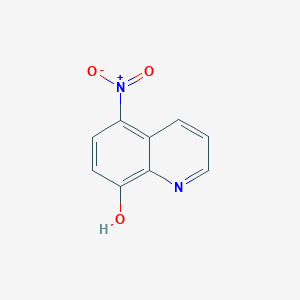-
Categories
-
Pharmaceutical Intermediates
-
Active Pharmaceutical Ingredients
-
Food Additives
- Industrial Coatings
- Agrochemicals
- Dyes and Pigments
- Surfactant
- Flavors and Fragrances
- Chemical Reagents
- Catalyst and Auxiliary
- Natural Products
- Inorganic Chemistry
-
Organic Chemistry
-
Biochemical Engineering
- Analytical Chemistry
- Cosmetic Ingredient
-
Pharmaceutical Intermediates
Promotion
ECHEMI Mall
Wholesale
Weekly Price
Exhibition
News
-
Trade Service
As far away as Tasmania, Australia, there is an animal called a kangaroo.
they are known for their temperamental irritability, and are extremely ferocious when threatened, competing for spouses, or grabbing food.
although only the size of a puppy, but the huge skull, sharp teeth, strong jaws allow them to have the number one or two bite force of mammals, can easily bite opponents or prey of the flesh and blood.
and their roars were so creepy that the first Europeans to see the bags gave them an English name: Tasmanian devil.
The dark body, the appearance of the fangs and the terrible roar that gave the bag the name "Devil" (Photo Source: Reference 2) More than two decades ago, it was discovered that a disease was more vicious than the devil.
the disease causes the kangaroo to grow tumors in the corners of the mouth, and cancer cells can spread throughout the face and neck, affecting eating, with a nearly 100% death rate.
even more frightening is that scientists have repeatedly found that it is a spreading cancer.
is precisely because the bags often bite each other, cancer cells can be "word of mouth."
particular mode of transmission also leads to the more powerful individuals are, the more likely they are to be infected with this deadly disease as a result of frequent attacks.
less than a decade, tens of thousands of kangaroos have died as a result of this "devil facial tumor disease" (DFTD), which ranks among endangered species.
at this rate, it may not take a few years for the kangaroo to disappear from the earth.
In 2006, scientists discovered and confirmed that the face tumours in the kangaroo were "contagious", and the results appeared in the top academic journal, Nature (Photo Source: Reference), but it's amazing that scientists who have been tracking "demons" for a long time to save the species have noticed that in recent years, some lucky people have shrunk or even disappeared altogether after contracting the deadly DFTD! This phenomenon not only makes the biologists who protect the kangaroo strange, but also attracts scientists who study human cancer.
if we can find a special mechanism for tumors to subside on their own, it will not only give the endangered species hope of survival, but also provide new insights into the fight against cancer, perhaps with new treatments.
years of research, a team of researchers recently worked with the Fred Hutchinson Cancer Research Center at Washington State University made important discoveries.
New study, published recently in the academic journal Genetics (Photo Source: Resources) Scientists re-captured several kangaroos based on past labels, collected tissue samples for genomic sequencing analysis, and compared the individuals in which the tumor shrunk to the individuals whose tumors did not shrink.
, according to the researchers, "demons" are fierce to their companions, but they are gentle and very cooperative with the researchers.
based on genome comparisons, the researchers found a variant of the gene RASL11A, which is associated with the self-degeneration of tumors.
further analysis revealed that the mutation did not alter the function of the gene itself in the tumor's self-shrinking bag, but it affected gene expression and "turned on" the function of the gene that inhibits tumor growth.
addition of THESL116 expression could slow tumor cell growth, and this result was also validated in in-body cell proliferation experiments.
The same bag, a year later, the facial tumors significantly smaller; these tumors shrink on their own, almost all of the RASL11A gene has a point mutation (Photo source: Reference 1) More notably, scientists found that in some human cancers, RASL11A has a decline in expression.
" gene is linked to prostate and colon cancer in humans.
Andrew Storfer, one of the authors of the study, explains that this means that
, while our findings are most directly related to saving the kangaroo, it has the potential to transform human health."
researchers say the results highlight RASL11A's natural mechanisms for tumor suppression and its potential as a target for cancer treatment.
, the team will continue to work to protect and save the kangaroo, saying it will look at whether there are any other genetic mutations that can affect tumors.
"We want to learn something from the bag to understand and treat human cancer," he said.
," Professor Storfer said.
"Currently in the treatment of human cancer, it is usually to kill the tumor, will use toxic or debilitating treatments."
, an oncologist and another person in charge of the study, said, "It would be a major step forward if the tumor could dissipate on its own without the use of cytotoxic drugs or without surgery."
" from saving "demons" far beyond the sky to benefiting humanity provides us with both an excellent example of what it means to protect biodiversity and the wonders of scientific research.
References, Mark Margres et al., (2020) Spontaneous tumor regression in Tasmanian devils associated with RASL11A activation. Genetics. DOI: Tasmanian devil research offers new insights for tackling cancer in humans. Retrieved Aug. 9, 2020, from A.-M Pearse et al., (2006) Transmission of devil-tumour disease. Nature DOI: Tasmanian devil. Retrieved Aug. 10, 2020, from.







